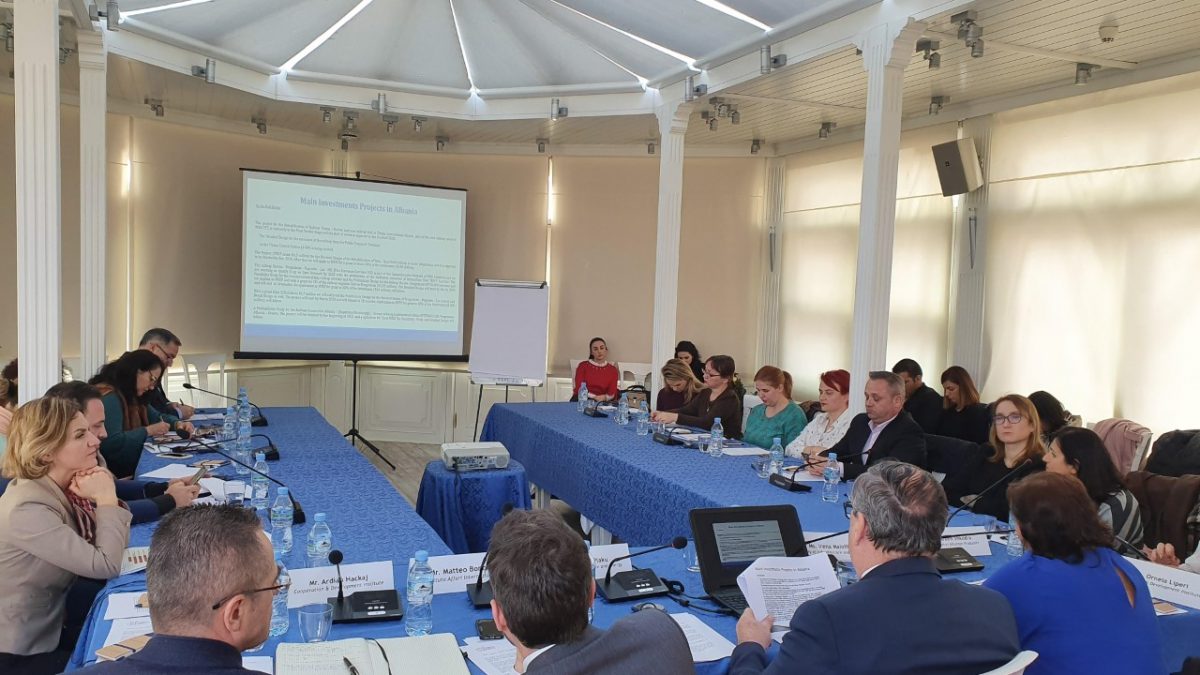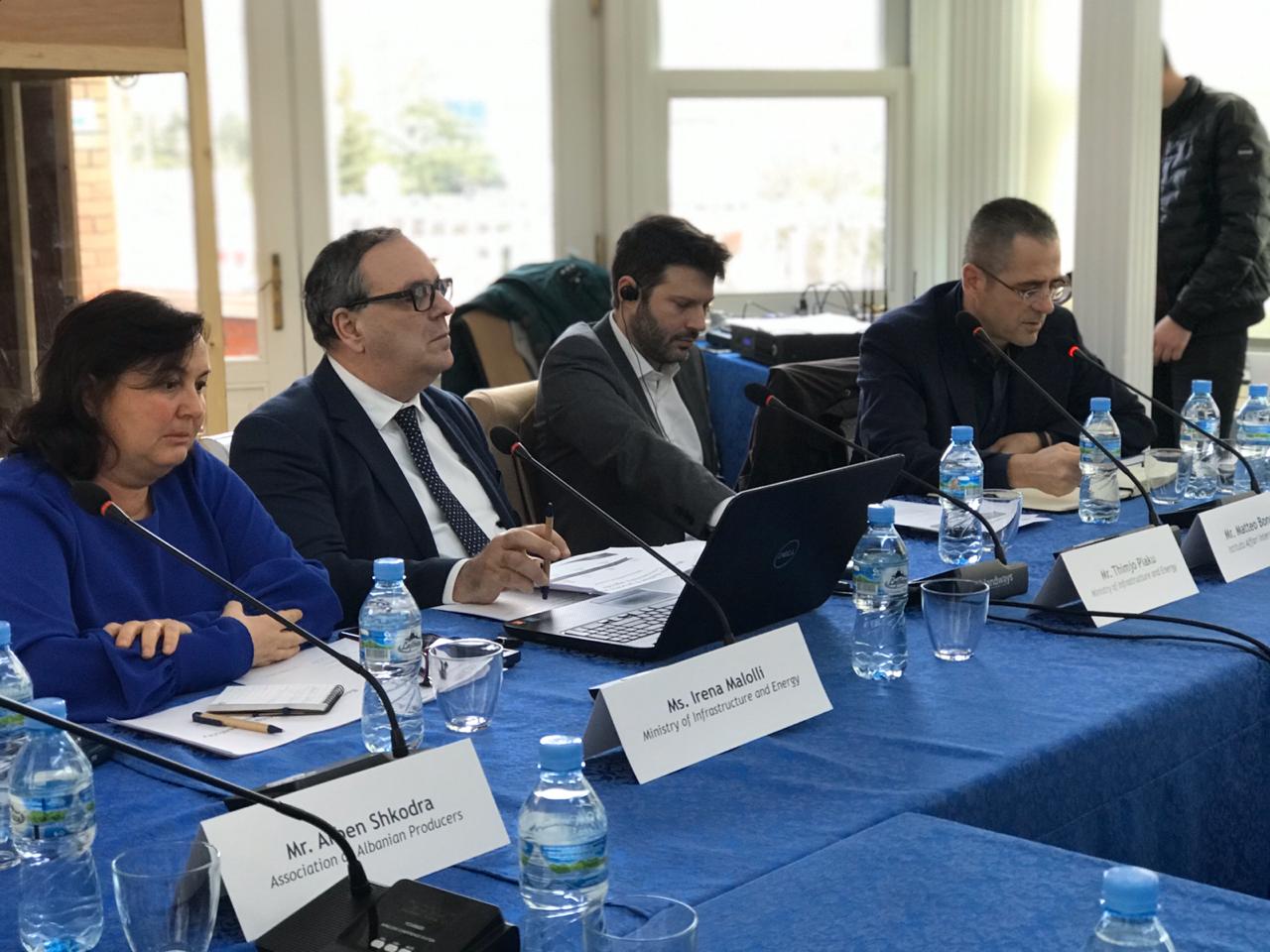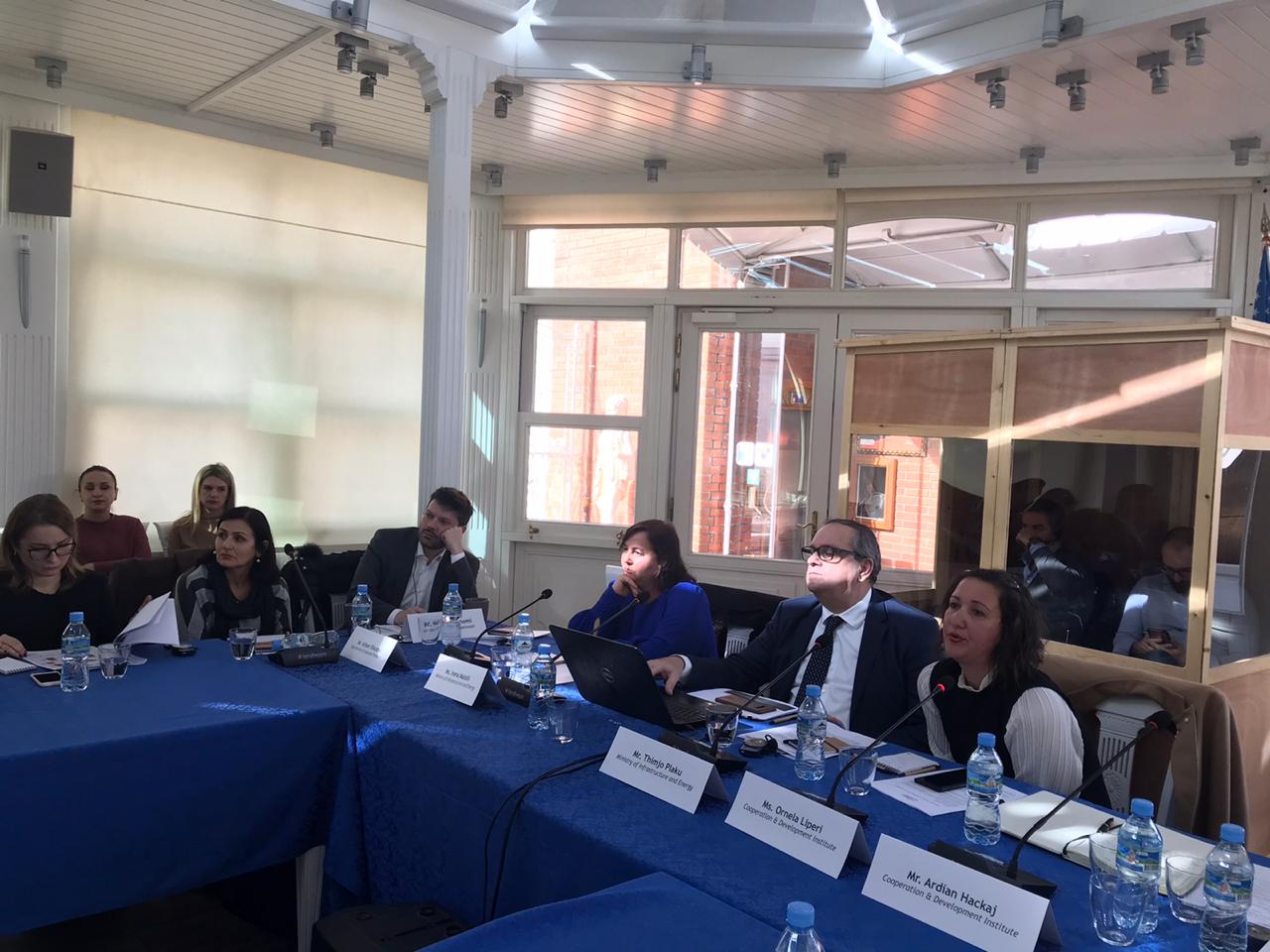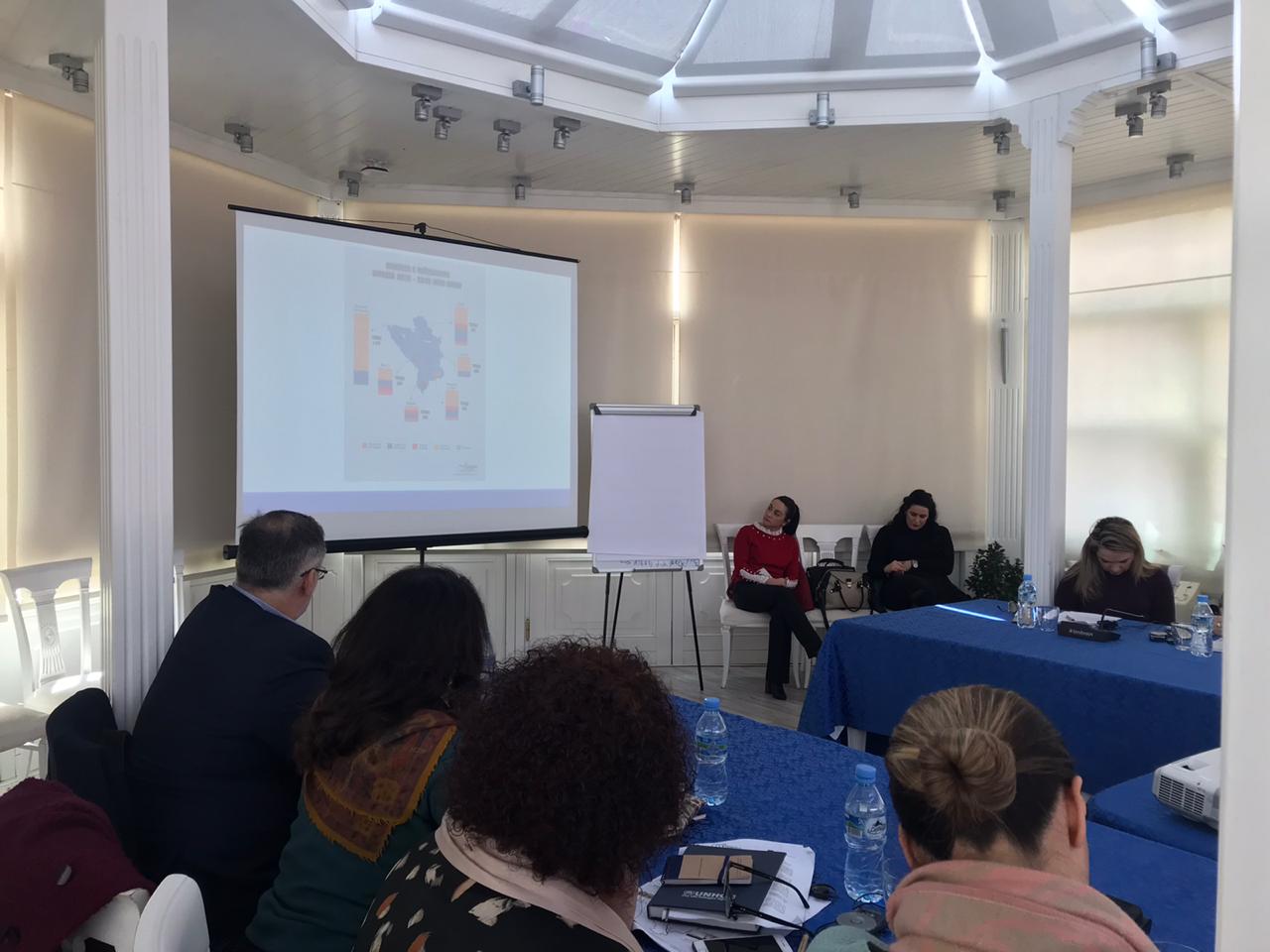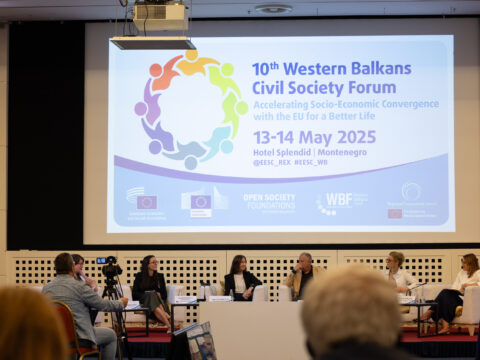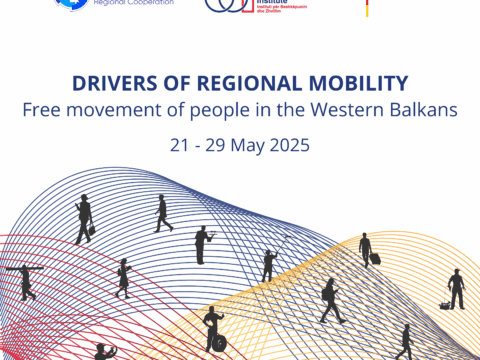On 5 February 2020, Cooperation and Development Institute- CDI organized the roundtable “Berlin process: enhancing connectivity and regional cooperation”. This event, followed the previous roundtables in the framework of the project “Preparing and Supporting Albania in the EU Accession Process”, being implemented by CDI and supported by the Dutch Embassy in Tirana.
The focus of this event was the analysis of the impact of Berlin Process in Albania, with particular spotlight on the progress of connectivity projects in transport and digital sectors. CDI also introduced its innovative methodology that links the impact of infrastructure on the territory with economic growth and value chain support. The presentations provided up-to-date data on project financing and implementation in Albania, highlighted the progress and challenges in implementing country projects in the areas of interconnectivity in the economy, infrastructure, digitalization and people to people, offering as well proposals to increase investment efficiency in the Connectivity Agenda.
The roundtable started with the welcoming remarks of Mr. Ardian Hackaj, who emphasized the fact that Albania is the first country where civil society monitors the progress and the achievement of the Connectivity Agenda and Berlin Process in the country. Mr Hackaj noted the strategic weight of connectivity projects (circa EUR 4.5bn compared to IPA II: circa EUR 6bn). In this regard, their role in shaping the territory, supported by economic growth and in the process of convergence with the EU, is sustainable.
Mr. Thimjo Plaku, Director for Development of Transport and Infrastructure Policies and Strategies, Ministry of Infrastructure and Energy and Albanian Representative to Regional Steering Committee of Transport Community Treaty, reflected the progress of the six Western Balkan countries’ interconnectivity in transport, emphasizing the existence of significant political support accompanying this process over the years. Mr. Plaku then presented Albania’s progress under this agenda, key projects in road, railway, sea and air transport, as well as measures of the connectivity planning reform.
Ms. Irena Malolli, Director for Development of Telecommunication and Posts Policies and Strategies, Ministry of Infrastructure and Energy provided an overview of Albania’s status in the digital sector. Ms. Malolli highlighted Albania’s very active role in WBIF digital networking projects, and preparations for the April 2020 Digital Summit, where it is important to have all sector stakeholders involved.
CDI expert and economic journalist, Ms. Ornela Liperi presented Albania’s priority projects in terms of economic profitability and a comparative approach of our country in relation to its neighbor Balkan countries. The presentation was illustrated by maps on project traces overlapping with the production structure of the crossing areas, also with comparative graphics. In the second part of the analysis, the focus shifted on the project “Adriatic-Ionian Corridor”, which is of a strategic importance for regional and European connectivity. The case of this investment highlighted the importance of linking projects to the structure of the territory and their importance to the economy of the area where it is implemented.
The last panelist, Mr. Matteo Bonomi, a researcher at Istituto Affari International in Rome, Italy, emphasized that the EU should revitalize its enlargement policy. The passages are narrow and are often hampered by conflicting requests from member states. Regarding the New Enlargement Methodology, he stated that improvements should not be only cosmetic, not of socio-economic character, but also of strategic importance in the region, where the increase of supporting funds for the WBs is most important.
In the concluding discussions, the participants also shared their opinions on the key elements to be considered in defining strategic priorities into project implementation. Investments are based on standard objectives and in order to be fully met, they must be preceded by accurate cost-benefit analysis, responding to the economic level so as not to be affected by budgetary constraints. The experts concluded that Albania is at the stage of achieving projects’ maturity, which has brought to a lower foreign financing level up to now. Lack of substantial investment, very long project life cycle, fiscal aspects of the economy, excessive use of PPPs, and financial loans were identified as causes affecting the efficiency of projects.
Valuable interventions were also made by the representative of the European Union Delegation to Albania who stated that the issues of the connectivity agenda are relative and that the assessment of priorities varies according to the development stages in which the country is located. It was argued that shifting of reforming measures must happen gradually.
The agenda of the event can be consulted here.



